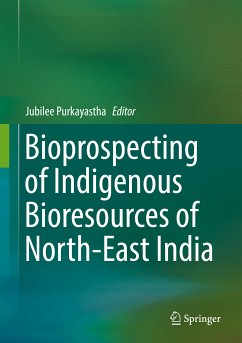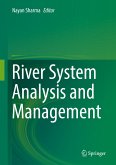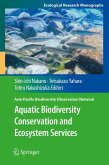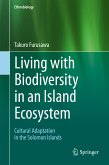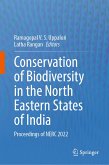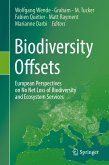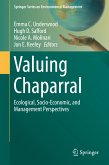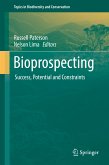This work is a comprehensive information on the indigenous bioresources of North Eastern India with the scope of bioprospecting for discovery and commercialization of new sources and products and long-term ecological balance.
The exploration, conservation and sustainable utilization of bioresources of world's Megabiodiversity Hotspots are undeniable. North Eastern India is a recognised biodiversity hot spot where the evolutionary forces are at its optimum, making this region as centre of origin for many species. Although little bit exploratory studies have been conducted in this part of the globe but a scientific exploitation of the bioresources is almost lacking. Unscientific exploitation and overexploitation without proper knowledge of the bioresources may lead to imbalanced ecosystem of this mega diversity region. At the same time, very less exploration and exploitation will hamper biodiversity based development. Today, unscientific dramatic changes are underway in this region. Human activities are changing, degrading and destroying the bioresources in an unplanned manner. Scientific bioprospecting of the bioresources will boost the economy while ensuring conservation.
This book offers comprehensive information about various levels of bioprospecting of the gene pool of this Indo-Burma Mega Biodiversity Hot Spot, the North East India, which is endowed with huge biodiversity potential for exploration and exploitation for the benefit of humankind. Also, this book highlights the less and merely explored part of the indigenous biodiversity of North East India with explanation towards their better sustainable exploitation for benefit of the people, economy and environment.
The novelty of the book lies in expert coverage of the bioresources of this mega-diverse region including plants, microbes, insects etc. with provisions for their sustainable scientific utilization. This book portrays North East India as a melting pot of bioresources which are little explored and also those resources which are still to be explored. The book mainly highlights the bioprospecting approaches for North East Indian bioresources, and thus, it make itself a unique one in filling the knowledge gap that is there regarding the bioprospecting of the biodiversity of this special region on the earth. The book concludes by the ecotourism potential of this region.
The target audiences for this book include biodiversity economists who are working on technology and bioresource management issues, and especially on biotechnology and biodiversity, development economists addressing the issues of bioresources in developing countries. These people may be in academia, in government, in non-governmental organizations and in private companies. The other target audiences group is policy scholars in government/public sectors who are interested in issues of biotechnology, IPRs, and biodiversity. In addition, scholars/experts in both development studies and resource management studies form another group of target audiences. Also, the book will be useful for the interaction between developed and developing nations regarding the issues of biodiversity and bioprospecting, as North Eastern India is the hub of Biodiversity.
The exploration, conservation and sustainable utilization of bioresources of world's Megabiodiversity Hotspots are undeniable. North Eastern India is a recognised biodiversity hot spot where the evolutionary forces are at its optimum, making this region as centre of origin for many species. Although little bit exploratory studies have been conducted in this part of the globe but a scientific exploitation of the bioresources is almost lacking. Unscientific exploitation and overexploitation without proper knowledge of the bioresources may lead to imbalanced ecosystem of this mega diversity region. At the same time, very less exploration and exploitation will hamper biodiversity based development. Today, unscientific dramatic changes are underway in this region. Human activities are changing, degrading and destroying the bioresources in an unplanned manner. Scientific bioprospecting of the bioresources will boost the economy while ensuring conservation.
This book offers comprehensive information about various levels of bioprospecting of the gene pool of this Indo-Burma Mega Biodiversity Hot Spot, the North East India, which is endowed with huge biodiversity potential for exploration and exploitation for the benefit of humankind. Also, this book highlights the less and merely explored part of the indigenous biodiversity of North East India with explanation towards their better sustainable exploitation for benefit of the people, economy and environment.
The novelty of the book lies in expert coverage of the bioresources of this mega-diverse region including plants, microbes, insects etc. with provisions for their sustainable scientific utilization. This book portrays North East India as a melting pot of bioresources which are little explored and also those resources which are still to be explored. The book mainly highlights the bioprospecting approaches for North East Indian bioresources, and thus, it make itself a unique one in filling the knowledge gap that is there regarding the bioprospecting of the biodiversity of this special region on the earth. The book concludes by the ecotourism potential of this region.
The target audiences for this book include biodiversity economists who are working on technology and bioresource management issues, and especially on biotechnology and biodiversity, development economists addressing the issues of bioresources in developing countries. These people may be in academia, in government, in non-governmental organizations and in private companies. The other target audiences group is policy scholars in government/public sectors who are interested in issues of biotechnology, IPRs, and biodiversity. In addition, scholars/experts in both development studies and resource management studies form another group of target audiences. Also, the book will be useful for the interaction between developed and developing nations regarding the issues of biodiversity and bioprospecting, as North Eastern India is the hub of Biodiversity.
Dieser Download kann aus rechtlichen Gründen nur mit Rechnungsadresse in A, B, BG, CY, CZ, D, DK, EW, E, FIN, F, GR, HR, H, IRL, I, LT, L, LR, M, NL, PL, P, R, S, SLO, SK ausgeliefert werden.

